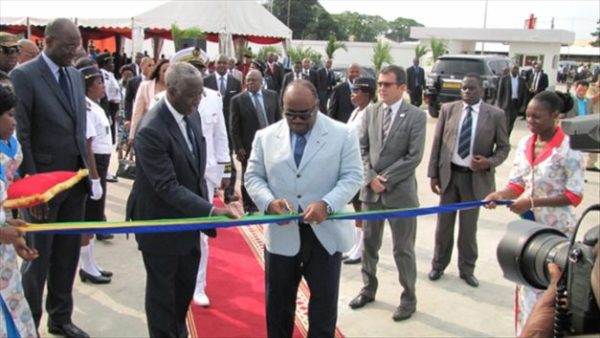Gabon, a small oil eldorado in Central Africa with a population of 1.8 million, has struggled to establish its democracy since 1990, the year of the introduction of multiparty politics. Thus, the national political life has been punctuated for several decades by the Democratic Party of Gabon (CEO-in power), created by the late Omar Bongo Ondimba, in 1968. The presidential election of August 2016 took place in a climate tense. The lack of inclusive national dialogue between the majority, the opposition and civil society puts the social process in harm’s way.
The previous government of Prime Minister Issozet Ngondet had great difficulty in organizing the parliamentary elections in the time allowed by the Constitutional Court which had demanded the resignation of the government, and therefore of the Prime Minister. The latter had finally been renewed. Voting was normally scheduled for December 27, 2016 before being postponed until July 29, 2017, due to lack of funds, then to end of April 2018. This last postponement was considered very likely due to the political situation in the country.
“In the 1970s, the Gabonese economy was dominated by forestry activities,” explained a report published by the Directorate General of the Economy. Forty oil companies, including a dozen operators, share the Gabonese mining area. Among the leading oil companies are Total Gabon, Perenco, Tullow Oil, Maurel and Prom and Addax Petroleum Oil & Gas. In the 1970s, the Gabonese economy was dominated by forestry activities, before oil took over and increased state revenues. At the same time, there was an important rural exodus to the big cities, including Libreville and Port-Gentil, and the influx of foreign workers into the oil sector.
A paradox remains: the state has not invested enough for forty years, depriving the population of the benefits of oil and the opportunity for a fresh start. But the reserves of black gold are running out. At the same time, at the national level, profound imbalances have been caused by the deterioration of the economy. The non-transparent allocation of oil resources, the non-implementation of the desired measures by donors and the unequal distribution of the country’s revenues have created pockets of poverty, as well as inflation and the marginalization of much of the country’s resources. of the population in the country. For many years, the misallocation of the oil windfall and the government’s spending lifestyle have paved the way for illicit enrichment.
Poor oil management and unsuitable investments
Gabon has more than 50% of tax revenues and 80% of exports from the oil and gas industry. With the oil boom of the 1970s, Gabon had embarked on heavy and unprofitable investments in the long term. This has not only led to the flight of capital and the illicit enrichment of some citizens, it has also widened the gap between rich and poor. The government finally passed an anti-corruption law. Corruption is a well-established habit. It has reached for several years the summits of power. Although the phenomenon is global, Gabon’s legal arsenal still did not have a law sanctioning certain forms of corruption.
Antoine L.



